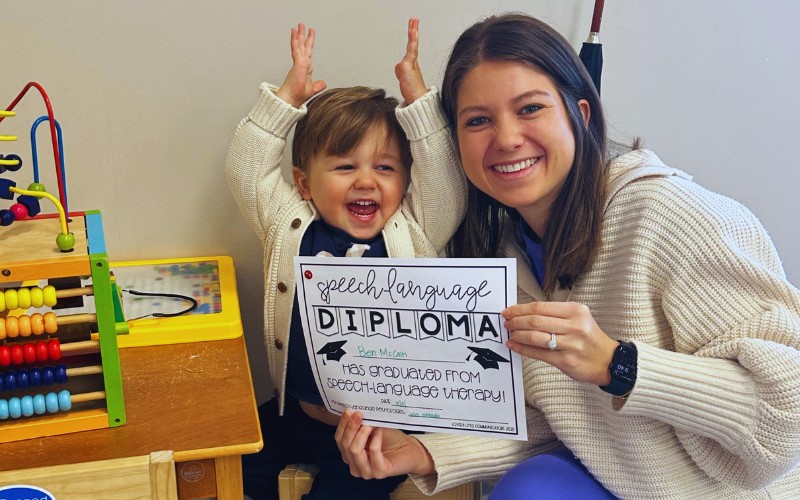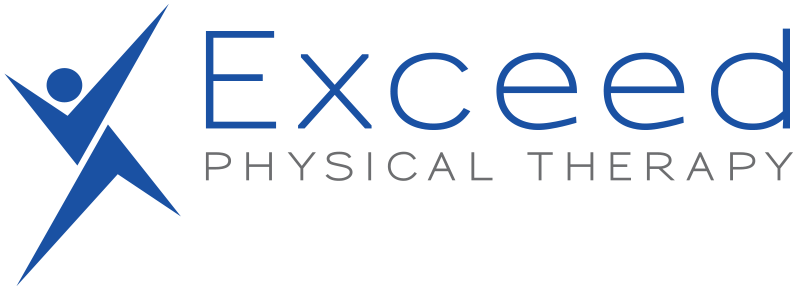
Language development is one of the most exciting aspects of early childhood growth. From a baby’s first coo to a toddler’s first sentence, each step is a milestone toward better communication. While every child develops at their own pace, interactive play is one of the most powerful ways to nurture language skills.
At Exceed Physical Therapy, we’ve seen firsthand how play-based learning in speech therapy can transform a child’s ability to express themselves.
Ben’s Story: A Journey of Growth in Speech Therapy
When Ben first came to us, he was struggling with an expressive language delay. Communicating his thoughts and needs was challenging, and his frustration was evident. Through targeted speech therapy and interactive play-based learning, Ben quickly began to gain communication skills, progressing from single words to phrases and short sentences.
His enthusiasm was contagious—every session was filled with determination and his signature sweet smile. Now, as he continues to expand his vocabulary and express himself more clearly, we couldn’t be more proud of how far he has come. Ben’s journey is a testament to how early intervention, patience, and the power of play can transform a child’s ability to communicate.
The Role of Play in Language Development
Play isn’t just fun—it’s one of the most powerful tools for language growth! Through interactive play, children build communication skills, expand vocabulary, and learn how to express themselves.
Pretend Play (Imaginative Play)
- Helps children learn new words and practice storytelling.
- Example: Playing “house” encourages kids to use real-world language like “Let’s cook dinner” or “Time for bed!”
Interactive Games (Turn-Taking & Listening)
- Encourages social skills like taking turns and following instructions.
- Example: Playing “Simon Says” teaches kids to listen carefully and follow directions.
Reading Together
- Books introduce new words, sentence structures, and storytelling techniques.
- Example: Ask questions while reading: “What do you think happens next?”
Toys & Objects (Hands-on Learning)
- Playing with blocks, puzzles, or dolls helps with descriptive language and problem-solving.
- Example: “The red block is on top! Can you find the blue one?”
By engaging in meaningful play, parents and caregivers can create rich learning environments that boost communication skills naturally.
When to Seek Speech Therapy
While every child develops at their own pace, you might consider speech therapy if your child:
❌ Has limited vocabulary for their age.
❌ Struggles to put words together into phrases.
❌ Has unclear speech or difficulty being understood.
❌ Shows frustration when trying to communicate.
Speech therapists provide structured guidance to help children develop the skills they need to express themselves confidently.
Every step toward communication, from a child’s first word to their first full sentence, is a milestone worth celebrating. By incorporating play-based learning, parents can nurture language growth while making the process fun and engaging!
